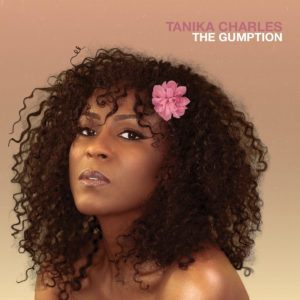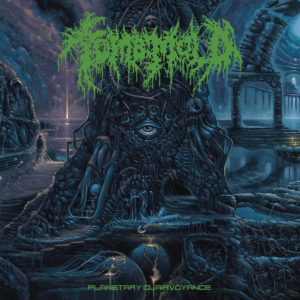Orville Peck Pony Royal Mountain/Sub Pop Orville Peck is an enigma — and so is his debut album, Pony. With his delicately hollow voice, sans country twang, the mysterious masked singer—who keeps his identity and real name a secret—has crafted a record that sounds like a transplant from a Western movie, defying both time and […]
Publishing date: Dec, 13, 2019
 Orville Peck
Orville Peck
Pony
Royal Mountain/Sub Pop
Orville Peck is an enigma — and so is his debut album, Pony.
With his delicately hollow voice, sans country twang, the mysterious masked singer—who keeps his identity and real name a secret—has crafted a record that sounds like a transplant from a Western movie, defying both time and space.
Peck himself seems otherworldly too. At times, his voice is so ethereal that when it quakes with pain, as he bemoans his isolation, it’s impossible not to empathize. From his lonely cocoon he wallows, like on the beautiful and heartbreaking,“Hope to Die.”
Peck may have a penchant for some big ballads, which are definite standouts on Pony. He proves he’s got the pipes to belt when he needs to, evoking passion, longing and despair all at once. But sonically he also succeeds when he grasps at the small details, making every whistle or steel guitar strum count as he allows some notes to fizzle out for emphasis. It’s minimalistic, and yet, overflows with fullness, carried largely by the richness of his voice.
In another life, Peck’s smooth vocals could pass for Roy Orbison’s, only more sad. There are glimmers of Johnny Cash’s signature drawl also peeking through, but Peck goes into a much dreamier realm as he broods and processes his thoughts on Pony. He’s the epitome of what the modern-day cowboy should be: mysterious and sleek, yet never dulling on sparkle. If you need any convincing, his extravagant vocals on “Turn to Hate” say it all.
There are moments that Peck savours to create a sense of danger, but he never fully ventures into rootin’ tootin’ outlaw territory. It works in his favour. The tension generated affords him moments of reflection and openness, where he playfully references his sexuality. Being openly gay in a genre that brings to mind gun-slinging conservatives in middle America is dangerous. Yet when he croons “See the boys as they walk on by,” the less-than-subtle lyricism only reinforces Peck’s stance as a real cowboy; he is someone unafraid to forge his own path.
Pony isn’t a breakup album or a love album. It’s one focused on looking inwards at oneself against a backdrop of love and loneliness. And as he sings mournfully to himself, it’s not so hard to picture him sitting tall, even as he rides off into the sunset alone.
• Natalie Harmsen
 TOBi
TOBi
STILL
Same Plate Entertainment/Sony
On STILL’s opening track, TOBi compares himself to a hurricane, a force of nature. As much as it’s a boast, it’s also on point, seeing as how this record is easily one of the strongest debuts of the year.
What sets STILL apart is the way TOBi navigates both soul and hip-hop, blending the two effortlessly.
“City Blues” is so smooth it feels as though TOBi’s words roll right off the cuff, and that strong knack for wordplay extends throughout the record, dropping terms like “tachycardia” unfazed. The contemporary thrills of “Locked In” sounds right at home alongside the cool keys and laid back snares of “FEEL,” as TOBi deftly finesses a style that’s all his own.
• Michael Rancic
 Haviah Mighty
Haviah Mighty
13th Floor
Independent
At first listen, Haviah Mighty’s debut appears to be a catchy old-school hip-hop album laced with Caribbean-flavoured beats. But it’s clear on the Polaris Music Prize-winning 13th Floor she’s examining the world for what it is: a place steeped in inequality, yet brimming with hope.
Her bars have a fierce bite, and she’s abundantly versatile, from her buttery vocals on “Wishy Washy” to her heavy-hitting rap prowess on “Fugazi.”
Beneath the trap-heavy surface, her lyrics flow with ease — it’s evident that the Brampton-MC has a vision to paint the story of her life for listeners with a reimagination of rap that’s as classic as it is experimental.
• Natalie Harmsen
 Clairmont The Second
Clairmont The Second
Do You Drive?
Independent
Continuing his prolific release schedule, Clairmont The Second returned this year with Do You Drive?, a slick, stylish set of self-reflection. Despite what the song titles may have you believe, Clairmont’s flow is far from monosyllabic, as he airs out his grievances against CityTV, Toronto Police, and people whose words don’t match their actions.
The album’s moodiness is maintained by the dazed bass and bleary synths that weave their way through each production. It’s been a treat watching Clairmont grow into the artist he is today, and Do You Drive? finds him in prime condition.
• Michael Rancic
 Sandro Perri
Sandro Perri
Soft Landing
Constellation Records
2018’s In Another Life found Sandro Perri experimenting with form, stretching ideas out in ways that always felt in service of the song.
In his hands, those songs were ripe for exploration, and he made each journey compelling. The music on Soft Landing feels just as patient, curious and playful.
The endlessly unspooling “Time (You Got Me)” opens the record with its dreamy, contemplative melody, its lyrics sweetly suggesting a sort of surrender.
The songs that follow, brought to life with an all-star cast of players, don’t beg for your attention so much as they invite listeners to be enveloped and carried away along with them.
• Michael Rancic
 Tre Mission
Tre Mission
Orphan Black
Last Gang
An album five years in the making, Tre Mission’s Orphan Black was worth the wait.
Mission made his name as one of the very first grime emcees to exist outside of the genre’s homeland of England, but on his fourth studio project he flexes his artistic muscles across a plethora of styles and moods.
To find an artist who is as proficient a producer as they are a vocalist is rare—especially in the 2019 rap landscape where songs often have multiple producers and writers—but Tre Mission wears both hats comfortably and with ease.
Whether you like grime, rap, wavy beats or sluggishly sung autotune, there’s something for everyone on Orphan Black.
• Josephine Cruz
 Tanika Charles
Tanika Charles
The Gumption
Record Kicks
Don’t let anyone tell you that artists mining a vintage sound are bereft of ideas. Tanika Charles’ The Gumption is a perfect example of how artists can coax plenty of new out of sounds of the past.
Charles plays the part of studious soul siren with absolute nerves of steel. Her voice commands over the cool, confident R&B, while her band oscillate between testing the limits of the sound and sending it up.
Album highlight “Look At Us Now” artfully interpolates David Bowie’s “Right” and The Isley Brothers’ “Summer Breeze”– all the range and possibilities of 70s soul contained in a riff.
• Michael Rancic
 Tomb Mold
Tomb Mold
Planetary Clairvoyance
20 Buck Spin
What makes Tomb Mold’s fourth album, Planetary Clairvoyance, impressive is not just the fact that its conceptual magnitude overthrows the mesmerizing muscle show of their past work, or that the album is a relentless homage to a melange of genres and eras, all held together by the unyielding precision of drummer and vocalist Max Klebanoff — it’s their ability to buck their own trademark through a skull-splitting, sword-wielding ambition to reimagine the relationship between form and function, executed to near-perfection.
At times, stuffing the inexhaustible stamina of speed metal into a iron-laced funnel of old-school death metal, Planetary Clairvoyance is as pretty as it is eccentric — balancing a show of terrific force with an incredible devotion to beauty.
• Melissa Vincent
 Yves Jarvis
Yves Jarvis
The Same But By Different Means
Flemish Eye
There is a tenderness and fragility to every song on Jean-Sebastian Audet’s first album under his new moniker, Yves Jarvis.
On TSBBDM he churns out something that feels new, and familiar. Echoing guitar mixed with bluesy falsetto pop, and trippy, jittery electronic splices of sound, recall the DIY-feel of his previous albums.
But Jarvis also tosses some soul, jazz, and a dash of “je ne sais quois” into his musical blender. Despite clocking in at 22 songs, Jarvis proves he is still a self-recording virtuoso. On the album, time passes freely, and it’s easy to lose track of it until the last second of “The Truth” — a peaceful comedown, that sputters out and fades away.
• Natalie Harmsen
 PUP
PUP
Morbid Stuff
Little Dipper/Universal
PUP is angry and they want you to know it. Morbid Stuff is the band’s way of yelling into the void, loudly but purposefully. It’s a form of catharsis that shows the band is still punk, still progressing, and still figuring out what it means to do both at once.
There is a swirling pool of anxiousness that PUP uses to aptly push listeners to question their existence, and the result is an anthemic record permeating with doom and gloom.
Frontman Stefan Babcock stays afloat the guitar-powered, bass-heavy chaos as he deftly declares “I don’t care about nothing.” Even though the world may be on fire, PUP is determined to wake everyone up as they rock as hard as they can.

